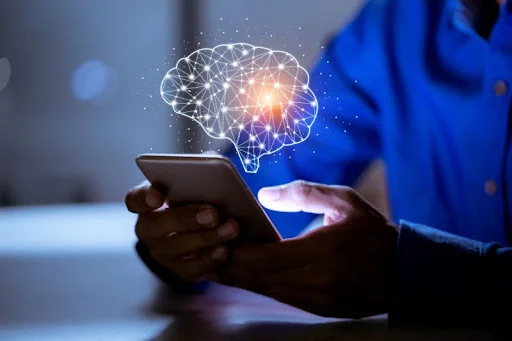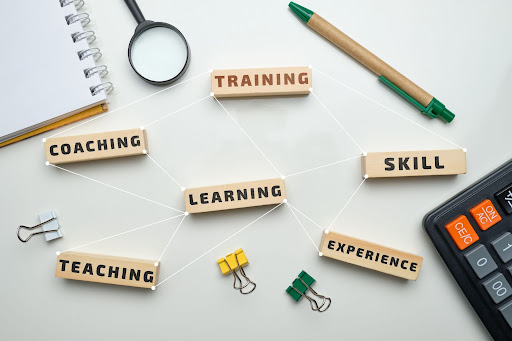
What is competence? Competence development in adulthood
In the current labour market environment, it is not uncommon for a young person to work in up to 6-10 jobs in their lifetime, and to change occupation once or twice. This is why the concept of lifelong learning has become such a central issue. But there is something even more important, without which an individual will not be successful in learning, employment or personal fulfilment. This is the right set of competences.
The article explains what competence means and what the most important, so-called key competences are. We will look at why competence development is so important and what opportunities there are for developing competences in adulthood. Finally, two fantastic individual competence development tools will be discussed: supervision and coaching.

The meaning of competence
The term 'competence' is linked to the discipline of education and its meaning is quite complex. Competence is a set of skills and abilities that enable someone to solve a problem in a given area, to be motivated enough to do so, to be able to make a decision and to carry out the result of that decision.
Competence has different components:
- Knowledge and skills that the individual can apply in practice
- Cognitive and practical skills and competences
- Behavioural and social components
- Attitude, attitude
- Personality traits
- Motivation
Competences can be developed and their development is particularly important in the current knowledge-based society. For example, to be able to learn, one needs to have the competence of "knowing how to learn", but also mother tongue and now digital competence.
The importance of competence development is already recognised at EU level. Therefore, a working group set up at the request of the European Council has identified a set of so-called key competences, a significant part of which should be acquired by all as part of public education.
Here the word should be relevant because, unfortunately, the experience is that there are serious gaps in this area, which can be filled in adult education in a good case. But more on this later. First, let's see what these key competences are.
Developing key competences and key skills
The working group defines the key competences as:
"Key competences are a transferable, multi-functional set of knowledge, skills and attitudes that everyone needs to have in order to fulfil and develop their personality, to fit into society and to be employable. Key competences should be acquired during the period of compulsory education and training. Later, in lifelong learning, they form the basis for all learning."
(source: https://ofi.oh.gov.hu/tudastar/nemzetkozi-kitekintes/egesz-eleten-at-tarto#11)
Key competences are therefore essential for a successful life, fulfilment and lifelong development. The 8 key competences are listed below and briefly summarised.
List of key competences
- Communication in your mother tongue: includes the ability to understand, speak, read, write and communicate at an appropriate level in all social and cultural contexts
- Foreign language communication: involves the same skills as mother tongue communication in a foreign language, combined with skills related to cultural understanding and mediation
- Mathematical, scientific and technological competences: the emphasis here is not primarily on knowledge, but on process. It is essential that the individual is able to do the calculations necessary for everyday life, wants to understand the world and has the methods to explain the natural world. To be able to adapt the natural environment to their needs or wants
- Digital literacy: confident use of electronic media for work, leisure and communication purposes
- Learning to learn: the ability to learn independently and in groups. Effective time management, problem-solving, processing, assimilating, evaluating and integrating knowledge into prior learning are important elements. Finally, the ability to apply knowledge in any context
- Interpersonal and civic competences: behaviours that enable effective and constructive participation in social life and conflict management
- Entrepreneurial competence: be able to accept, support and adapt to changes in their environment. At the same time, they must have the ability to trigger change, to think strategically, to set and achieve goals. Be success-oriented and able to take responsibility
- Cultural competence: creative expression of thoughts, feelings and experiences through dance, music, literature, etc. and the ability to understand them
For each of the above competences, a detailed description of exactly what knowledge, skills and attitudes are associated with them has been provided, with a detailed description of can be found here.
The importance of competence development
As mentioned in the introduction, the labour market has been in a constant state of flux in recent years, and we can expect even more radical changes in the years ahead. This is the result of continuous technological progress and automation, as routine jobs are being eliminated and replaced by new ones.
This also means that there will be a need for continuous retraining and further training, so it will truly be a lifelong learning process. At the same time, think of the burden this can be for someone who has not otherwise fitted in well or done well in the traditional education system!
Therefore, it is more important than ever to strengthen the competences that enable individuals to learn continuously without feeling compelled to do so. Unfortunately, however, the current public education system only does this to a very limited extent. So what is the solution?

Skills development in adulthood
In many cases, adult learning must fill the gaps in public education. However, those working in adult education are also in a difficult situation. On the one hand, there is a very rapid change, especially in technological skills, and on the other hand, it is very difficult to prepare someone for a job that did not exist before. Therefore, adult education must also place great emphasis on the development of different skills and competences, so that individuals can more easily find their place in unfamiliar terrain.
Another challenge is how to motivate and actively involve adults who have already had many failures and bad experiences in public education.
To overcome these challenges, new methods and new approaches are needed:
- Today, the use of modern technology, digital learning materials and e-learning tools is indispensable
- Teaching should be lifelike and experiential: using interactive exercises, simulations, 3D modelling, videos, etc.
- Instead of long, years-long training, shorter, more concise, intensive "bootcamp" training courses are a good way forward, usually lasting a maximum of 6-18 months and offering immediate job start
- A change of mindset is also needed in financing, including in the form of training loans, both at public and company level
- It is essential to educate and motivate employers (even in the form of tax incentives, etc.) to understand why they need to train their employees and to support it

Supervision and coaching: two super tools for competence development
It is possible and worthwhile to develop the different competences individually, in adulthood. There are two very useful ways to do this: supervision and coaching.
Supervision is mainly used in the business and workplace. It is a competency development methodology whose primary aim is to learn from our previous experiences and thus be able to work in a more conscious and professional way. It builds to a large extent on self-reflection ability develops and enables deeper insights. Recognises and builds awareness of existing competences and develops them. Its main questions are what the individual wants, why he wants it, and what your motivations are. It deals with the "here and now" and can be a very good basis for coaching with a forward-looking approach.
A coaching can be applied to a much wider range of areas: from life coaching to business coaching and even relationship coaching. It is much more future-oriented than supervision, with the essential element of setting a goal and consciously achieving it. However, it should not be confused with counselling, where the answers are not found by the coach but by the coachee, i.e. the learner. The coach only uses his or her own tools and questions to set the client on the path to change, giving him or her new tools to help him or her. Coaching is a great tool for developing competences and learning new ones.
So, to summarise the above, the concept of lifelong learning can only be implemented if the foundations are in place: the key competences. For this reason, the development of lifelong competences is now at least as important as the development of key competences, and can be addressed more effectively than in public education by more flexible adult learning. At the same time, it is everyone's responsibility to develop their own competences: it is therefore worthwhile to take part in individual, tailor-made development programmes, such as supervision or coaching.
DO YOU HAVE A QUESTION? CONTACT US!
Are you unsure about what form of support could solve your problems? Read more about our coaching services here, or contact us!

 Designabc
Designabc